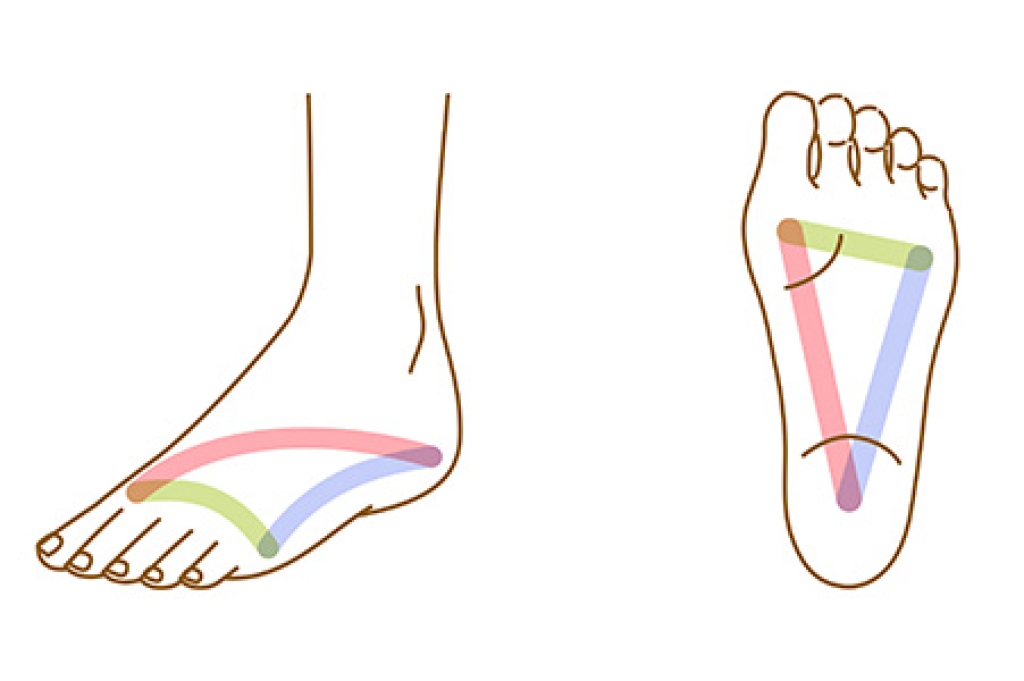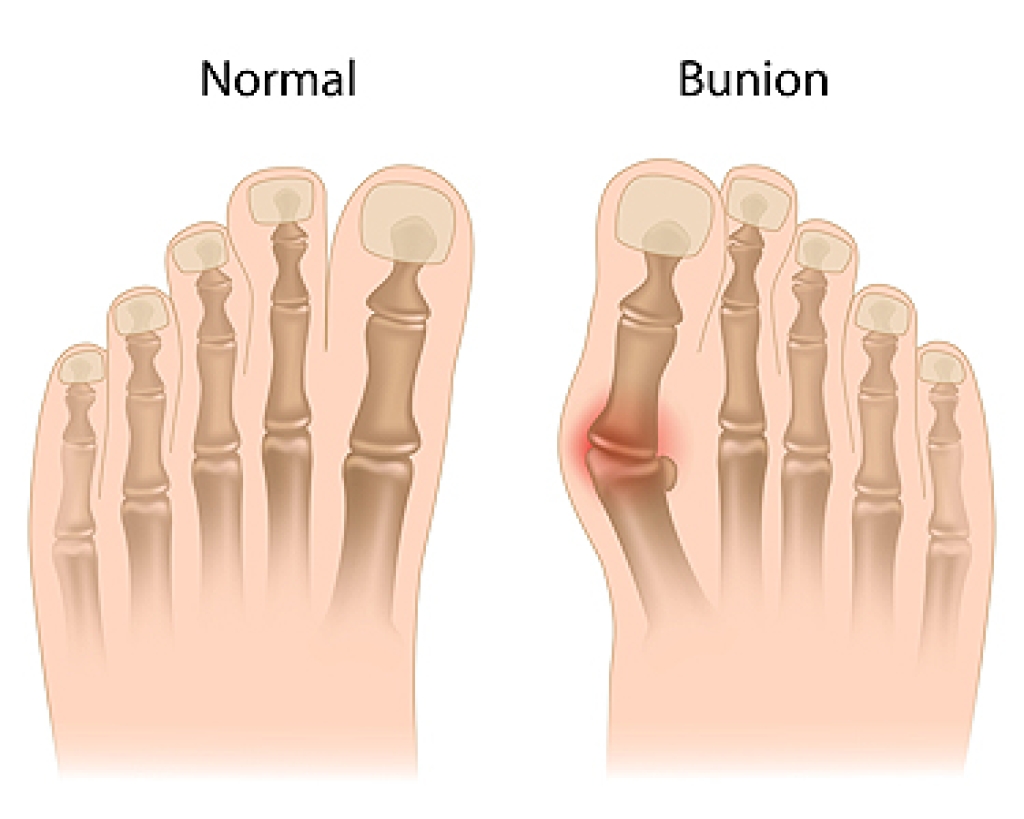Connect With Us
Blog
Blog
Understanding the Role of a Podiatrist

A podiatrist is a medical professional who specializes in diagnosing, treating, and preventing conditions of the feet, ankles, and lower legs. They manage a wide range of foot problems, including bunions, heel pain, arthritis, infections, and injuries. Podiatrists also develop individualized treatment plans that may include medication, lifestyle modifications, or surgical procedures, when necessary. They are skilled in diagnosing complex foot and ankle conditions and can prescribe custom orthotics to support proper alignment and relieve discomfort. By addressing foot health proactively, a podiatrist helps patients maintain mobility, prevent complications, and improve quality of life. If you are experiencing foot or ankle issues, it is suggested that you promptly seek podiatric care for expert evaluation and treatment.
If you are experiencing pain in the feet or ankles, don’t join the stubborn majority refusing treatment. Feel free to contact the foot specialists from Academy Foot and Ankle Specialists. Our doctors can provide the care you need to keep you pain-free and on your feet.
What Is a Podiatrist?
Someone would seek the care of a podiatrist if they have suffered a foot injury or have common foot ailments such as heal spurs, bunions, arch problems, deformities, ingrown toenails, corns, foot and ankle problems, etc.
Podiatric Treatment
A podiatrist will treat the problematic areas of the feet, ankle or lower leg by prescribing the following:
- Physical therapy
- Drugs
- Orthotic inserts or soles
- Surgery on lower extremity fractures
A common podiatric procedure a podiatrist will use is a scanner or force plate which will allow the podiatrist to know the designs of orthotics. Patients are then told to follow a series of tasks to complete the treatment. The computer will scan the foot a see which areas show weight distribution and pressure points. The podiatrist will read the analysis and then determine which treatment plans are available.
If you have any questions, please feel free to contact our offices located in Southlake, Keller (Fort Worth), Hurst, North Richland Hills, Flower Mound, Argyle, and Denton, TX. . We offer the newest diagnostic and treatment technologies for all your foot care needs.
Foot Arch Types and How to Support Them

Foot arches play a vital role in balance, movement, and shock absorption. There are three main types, which are high arches, or pes cavus, flat feet, also called pes planus, and normal arches. Each type affects how the foot functions and bears weight. Weak or imbalanced arches can lead to discomfort or injury. Arch strengthening exercises such as arch lifts, heel raises, and towel pickups can help improve stability and support. A podiatrist can assess your arch type, recommend custom orthotics, and guide you through exercises tailored to your needs. If you experience foot fatigue, imbalance, or pain, it is suggested that you seek professional help from a podiatrist who can guide you on a custom plan to strengthen your arches and promote long-term foot health and comfort.
Exercising your feet regularly with the proper foot wear is a great way to prevent injuries and build strength. If you have any concerns about your feet, contact the foot specialists from Academy Foot and Ankle Specialists. Our doctors can provide the care you need to keep you pain-free and on your feet.
Exercise for Your Feet
Exercise for your feet can help you gain strength, mobility and flexibility in your feet. They say that strengthening your feet can be just as rewarding as strengthening another part of the body. Your feet are very important, and we often forget about them in our daily tasks. But it is because of our feet that are we able to get going and do what we need to. For those of us fortunate enough to not have any foot problems, it is an important gesture to take care of them to ensure good health in the long run.
Some foot health exercises can include ankle pumps, tip-toeing, toe rises, lifting off the floor doing reps and sets, and flexing the toes. It is best to speak with Our doctors to determine an appropriate regimen for your needs. Everyone’s needs and bodies are different, and the activities required to maintain strength in the feet vary from individual to individual.
Once you get into a routine of doing regular exercise, you may notice a difference in your feet and how strong they may become.
If you have any questions, please feel free to contact our offices located in Southlake, Keller (Fort Worth), Hurst, North Richland Hills, Flower Mound, Argyle, and Denton, TX. . We offer the newest diagnostic and treatment technologies for all your foot care needs.
Understanding Metatarsal Foot Pain

Pain in the ball of the foot, known as metatarsalgia, is a common condition that affects the long bones of the foot. It can feel like a sharp, aching, or burning pain, often worsened by standing, walking, or wearing tight shoes. You may also feel like you are stepping on a pebble, and the area can appear red, swollen, or bruised. Common causes include high-impact activities, wearing unsupportive or ill-fitting shoes, high arches, excess weight, aging, and foot deformities like hammertoes or bunions. Sometimes, stress fractures in the metatarsals can also cause similar discomfort. A podiatrist can examine your foot, order imaging tests, if needed, and recommend effective treatments. These include custom orthotics, shoe changes, and anti-inflammatory medication. Surgery may be needed if the pain is caused by structural issues or fractures. If you have pain in the ball of your foot, it is suggested that you schedule an appointment with a podiatrist for an accurate diagnose and appropriate treatment.
Foot Pain
Foot pain can be extremely painful and debilitating. If you have a foot pain, consult with the foot specialists from Academy Foot and Ankle Specialists. Our doctors will assess your condition and provide you with quality foot and ankle treatment.
Causes
Foot pain is a very broad condition that could be caused by one or more ailments. The most common include:
- Bunions
- Hammertoes
- Plantar Fasciitis
- Bone Spurs
- Corns
- Tarsal Tunnel Syndrome
- Ingrown Toenails
- Arthritis (such as Gout, Rheumatoid, and Osteoarthritis)
- Flat Feet
- Injury (from stress fractures, broken toe, foot, ankle, Achilles tendon ruptures, and sprains)
- And more
Diagnosis
To figure out the cause of foot pain, podiatrists utilize several different methods. This can range from simple visual inspections and sensation tests to X-rays and MRI scans. Prior medical history, family medical history, and any recent physical traumatic events will all be taken into consideration for a proper diagnosis.
Treatment
Treatment depends upon the cause of the foot pain. Whether it is resting, staying off the foot, or having surgery; podiatrists have a number of treatment options available for foot pain.
If you have any questions, please feel free to contact our offices located in Southlake, Keller (Fort Worth), Hurst, North Richland Hills, Flower Mound, Argyle, and Denton, TX. . We offer the newest diagnostic and treatment technologies for all your foot care needs.
Risk Factors and Treatment of Bunions

A bunion is a deformity of the joint at the base of the big toe, where the bones gradually shift out of alignment. This happens when the tip of the big toe leans toward the smaller toes, forcing the metatarsal bone inward and forming a bony lump at the joint. Bunions may develop slowly over years, or appear more rapidly in adolescents. Risk factors include family history, wearing shoes that squeeze the toes, inflammatory joint diseases like rheumatoid arthritis, and structural foot problems, such as over-pronation. Bunions often cause pain, redness, swelling, and thickened skin over the joint. A podiatrist can help by providing supportive devices to ease pressure and correcting foot mechanics. In severe cases, surgery may be required to realign the bones and relieve pain. If you have a bunion that is interfering with your daily activities, it is suggested that you schedule an appointment with a podiatrist for an exam and appropriate treatment options.
If you are suffering from bunions, contact the foot specialists of Academy Foot and Ankle Specialists. Our doctors can provide the care you need to keep you pain-free and on your feet.
What Is a Bunion?
A bunion is formed of swollen tissue or an enlargement of boney growth, usually located at the base joint of the toe that connects to the foot. The swelling occurs due to the bones in the big toe shifting inward, which impacts the other toes of the foot. This causes the area around the base of the big toe to become inflamed and painful.
Why Do Bunions Form?
Genetics – Susceptibility to bunions are often hereditary
Stress on the feet – Poorly fitted and uncomfortable footwear that places stress on feet, such as heels, can worsen existing bunions
How Are Bunions Diagnosed?
Podiatrists often perform two tests – blood tests and x-rays – when trying to diagnose bunions, especially in the early stages of development. Blood tests help determine if the foot pain is being caused by something else, such as arthritis, while x-rays provide a clear picture of your bone structure to your provider.
How Are Bunions Treated?
- Refrain from wearing heels or similar shoes that cause discomfort
- Select wider shoes that can provide more comfort and reduce pain
- Anti-inflammatory and pain management drugs
- Orthotics or foot inserts
- Surgery
If you have any questions, please feel free to contact our offices located in Southlake, Keller (Fort Worth), Hurst, North Richland Hills, Flower Mound, Argyle, and Denton, TX. . We offer the newest diagnostic and treatment technologies for all your foot care needs.
Blog Archives
- 2026
- 2025
- 2024
- 2023
- 2022
- 2021

